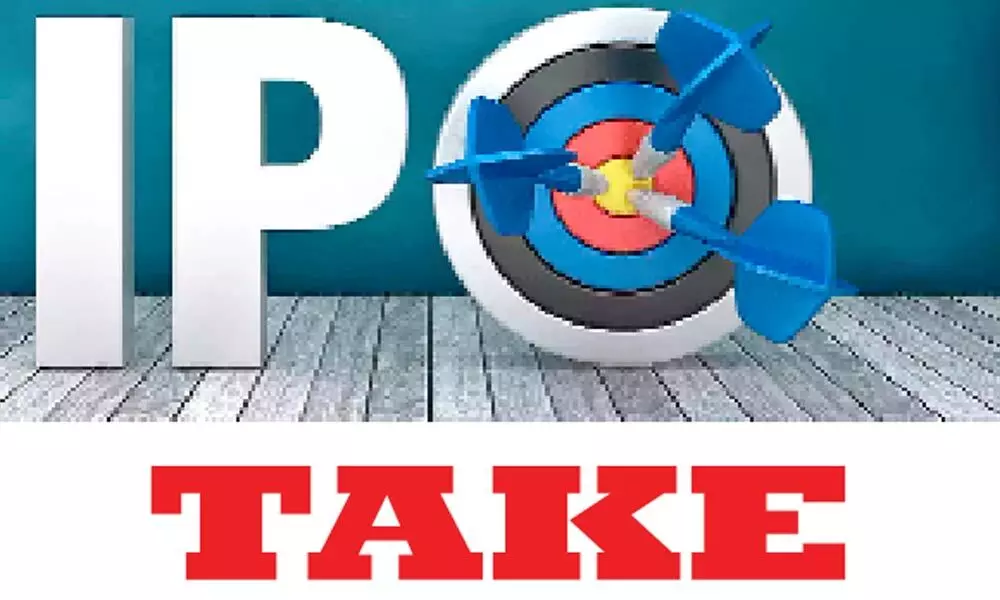Star Heath & Allied Insurance Co: Looks pricey now
The health insurance company is the largest private sector player, but had reported losses for the year ended March 2021 and the half year ended September 2021. In the current year it would be unable to turn back into profits because of the claims made on account of Covid-19
image for illustrative purpose

Star Heath and Allied Insurance Company Limited, which is tapping the capital markets with its fresh issue for Rs2,000 crores and an offer for sale of 5,83,24,225 shares in a price band of Rs 870-900, completed allocation to anchor investors. The company allotted 3,57,45,901 equity shares to 49 entities comprising of 62 entities at the top end of the price band of Rs 900.
The top four anchor investors were allotted 1,07,66,352 shares or 30.12 per cent of the anchor book. The surprising thing was that there was just one domestic fund, Edelweiss Mutual Fund who invested 1,65,376 shares or 0.46 per cent of the anchor book. Very clearly the non-participation by domestic mutual funds whatever be their reason is a disturbing thing as they are the entity which is witnessing the maximum fund flow currently. In previous issues, wherever domestic mutual funds have stayed away from the anchor book, has seen those issues fare poorly on the bourses post listing.
The issue would garner Rs 7,249 crores at the top end of the band. The issue opened on Tuesday (November 30) and would close on Thursday (December 2).
The company which is into health insurance is the largest private sector player, but had reported losses for the year ended March 2021 and the half year ended September 2021 as well. The company in the current year would be unable to turn back into profits because of the claims made on account of Covid-19. Further the claims on account of other diseases which are seasonal and viral in nature like Dengue, Chikungunya and Malaria will cause a hole in the balance sheet of star health. The outbreak of the new variant found in Africa omicron, from the Covid-19 family is not helping matters and would hurt the company.
The company is offering a discount of Rs 80 to employees applying for the issue. This seems as an improper discount amount as it is an odd 8.88 per cent. Normally the discount is five per cent or 10 per cent. It appears that the probable price fixed by the company and its selling shareholders was Rs 800 and at the last minute the same was changed to Rs 900. The company due to oversight forgot to change the discount to match the 10 per cent discount and make the same Rs90. This change in price for whatever reason has seen the lack of interest from investors whether it be domestic mutual funds or the leveraged HNI.
The subscription on the second day of the issue midway through the issue is poor. The overall book has been subscribed 0.14 times with retail portion being subscribed 0.77 times with 2.92 lakh applications having been received so far. HNI portion is subscribed a mere 0.02 times. The retail portion would get subscribed while HNI is unlikely to happen. The overall subscription would have to be driven by the QIB book which is currently subscribed 0.00 having received bids for 42,000 shares. Normally this segment is always subscribed on the last day of the issue. With domestic mutual funds abstaining, things would be tough.
A competitor to Star Health would be ICICI Prudential who has reported profits for the year ended March 2021, and both the quarters of the current year FY22. Clearly its not just that the company going public has reported losses, but that its competitor has made profits in the similar period.
I believe the company at the current rate may not make profits even in FY 23. The PE for the stock is infinite and the NAV as on September 30 is Rs57.83. The issue is expensive and investors should spend the Rs14,400 that they would have applied in the share to buy health insurance for Covid-19 and the other diseases. This would be far more rewarding as health would be protected, and health is wealth.
With no activity in the grey market worth talking about, it makes sense to stay away from the issue and let the issue pass. If prices do soften post listing one should relook at that time.
(The author is the founder of Kejriwal Research and Investment Services, an advisory firm)

